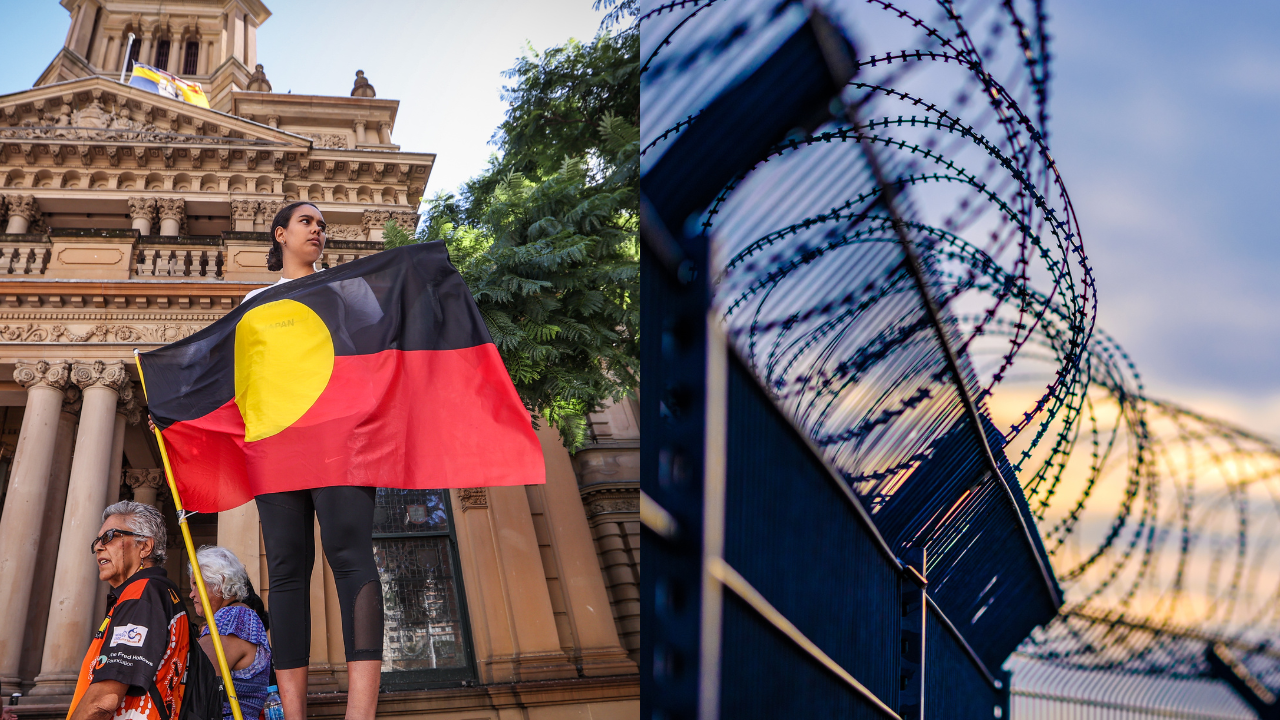
“The system is so harmful to children and Indigenous kids. Then add in the complexity of having a pre-existing condition, trauma or being Blak in this system, and then add the fact that you’re going to spend hours and hours in solitary confinement for no clear reason, it’s disgusting.”
at risk of, or are, causing harm to others or themself.
“While it may seem like the best outcome for a child who is hurting themself, it is the worst possible thing for a mentally unwell person’s psychological safety,” they said.
There is absolutely no need to put a child with complex mental health, complex trauma, complex needs — behavioural, physical or otherwise — in a situation that is only going to exacerbate that.”
2014 Washington University study
American Civil Liberties Union reported in 2017
the report read
23 states in the US have enacted statutes that limit or prohibit its use
Deborah Glass
conducted research of incarcerated 18 to 24-year-olds in 2019
“There is so much that Aboriginal and Torres Strait Islander people have experienced and the pain of that lives on in all of us,” they said.
“There’s the trauma they’re experiencing at an intergenerational level, they may have complex needs, they’ve probably been experienced to stuff you wouldn’t want kiddies exposed to — whether that’s a loved one also going through the system, over-policing or police brutality or just being Blak in Australia — and those things set so many of us up for pain and trauma.”
Royal Commission into the Protection and Detention of Children in the Northern Territory
human rights abuses at Don Dale Detention Centre
Aboriginal Deaths In Custody
First Nations children are being incarcerated at an increasing rate in 2022
despite years of fierce campaigning
Leanne Linard, Minister for Children and Youth Justice and
Minister for Multicultural Affairs,
Michael Berkman
Human Rights Act
“I’m genuinely terrified that the next death in custody is going to be one of our kids and if that happens every single government, state, territory and federal, will have blood on their hands — they already do,” Munn said.
“
Whether they’re 17 or 10, they’re children. They deserve to be in school not in these positions.
“I don’t know what more it’s going to take for people to take us seriously and get our kids out of these places.”
Help is available.
If you need mental health support, please call Lifeline on 13 11 14 or
chat online
.
Under 25? You can reach Kids Helpline at 1800 55 1800 or
chat online.
You can also reach the Suicide Call Back Service on 1300 659 467 or
chat online.
If you require immediate assistance, please call 000.
Separation is taking a child from their regular group or setting and placing them into a separate, isolated cell where they are deprived of interaction and their regular rights like yard time.
Separation lasts however long the corrections officers deem is appropriate.
The two most common reasons a child is separated are because they are
But Munn said using isolation as a response to threats of self-harm or suicide actually caused more damage.
“
Solitary confinement as punishment has been common practice in prisons around the world and dates back to the 1830s. But the psychological detriments of isolation on children are well-documented and accepted.
A found the psychological effects of youth solitary confinement were far more dramatic than on adults and commonly resulted in depression, anger, obsessive thoughts, paranoia and psychosis, or suicide.
The youth solitary confinement was especially dangerous due to children’s brain development.
“Because their brains are still developing, children are highly susceptible to the prolonged psychological stress that comes from being isolated in prisons and jails. This stress can inhibit development of parts of the brain — such as the pre-frontal cortex which governs impulse control — causing irreparable damage,” .
The practice is illegal under international human rights law, and . In Australia, some states are taking steps to outlaw juvenile isolation. Victorian Ombudsman and found “youth justice systems are being damaged rather than rehabilitated through excessive use of isolation”.
Solitary confinement is cruel to everyone, Munn said, but for a First Nations child as young as 10 it could have worse effects.
But five years after the following , and 31 years after the Royal Commission into , not much has changed. In fact, and the age of incarceration remains at 10 nationwide — one of the youngest in the world — .
The shocking new Queensland figures were read in parliament last month by in response to questioning from Greens MP .
“It’s incredibly alarming that Queensland youth prisons are routinely putting primary school-aged children in isolation,” Berkman told PEDESTRIAN.TV.
“This is yet another example of how systemic racism taints every corner of our so-called justice system here in Queensland. First Nations kids are disproportionately locked up younger, for longer periods, and in worse conditions, including in adult watch houses and isolation rooms.”
Under Australia’s children have a right to be with their family, access education and practise their culture or religion. Advocates say the Queensland government continues to violate those rights.
The post 31,000 Qld Children Were Put Into Solitary Confinement Last Year — 84% Of Them Were Indigenous appeared first on PEDESTRIAN.TV .







